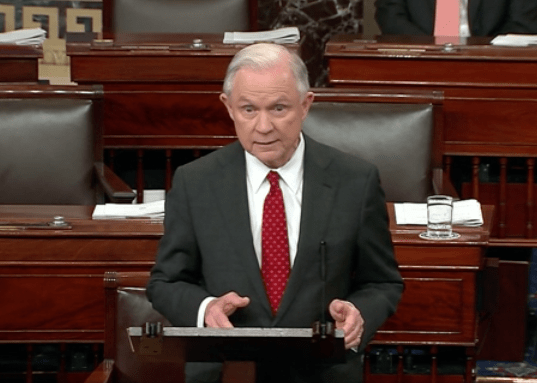Despite Attorney General Jeff Sessions’ open questioning of medical marijuana’s safety and efficacy, Congress appears ready to remove him from the equation.
Keeping the federal government’s lights on used to be considered a no-brainer. If the government shuts down, then how can it effectively govern?
This conventional thinking has faded a bit as partisan politics and story spinning has become the new norm in Washington. Now the threat of shutting down the government over single issues is used regularly.
The Trump White House seemed ready to risk a shutdown over the president’s more controversial campaign promises such as the construction of a southern border wall. But last week, Trump seemed willing to cave on a few of his signature plans.
It also seems Congress was not eager to send itself home. A stop-gap measure to keep the government running past last Friday was reached. But the real surprise is a spending bill that was announced a few days ago. The new bill will fund government activities until September. The bill seems to be a victory for Democrats as no funds in this new budget were allocated for the border wall or a deportation force. Obamacare and Planned Parenthood subsidies also survived.
There is another potential loss that the new budget also highlights, a loss that may particularly sting Jeff Sessions. Congress has reauthorized the Rohbacher-Farr amendment. This agreement was first implemented in the December 2014 spending bill and prevents the Justice Department from targeting any state medical marijuana laws.
Here is the text from the spending bill’s marijuana provision:
None of the funds made available in this Act to the Department of Justice may be used, with respect to any of the States of Alabama, Alaska, Arkansas, Arizona, California, Colorado, Connecticut, Delaware, Florida, Georgia, Hawaii, Illinois, Iowa, Kentucky, Louisiana, Maine, Maryland, Massachusetts, Michigan, Minnesota, Mississippi, Missouri, Montana, Nevada, New Hampshire, New Jersey, New Mexico, New York, North Carolina, Ohio, Oklahoma, Oregon, Pennsylvania, Rhode Island, South Carolina, Tennessee, Texas, Utah, Vermont, Virginia, Washington, West Virginia, Wisconsin, and Wyoming, or with respect to the District of Columbia, Guam, or Puerto Rico, to prevent any of them from implementing their own laws that authorize the use, distribution, possession, or cultivation of medical marijuana.
Since being confirmed as the U.S. Attorney General, Sessions has made it a habit of pushing outlandish claims against marijuana. With recent polls highlighting historically high support for legalized marijuana, it does not seem that the public or Congress has been moved by Sessions’ remarks.
Of course, Sessions could still target recreational states, but can the Trump administration afford to take on yet another deeply unpopular initiative? Will they be willing to launch a culture war to eliminate jobs, businesses, and new sources of revenue?








